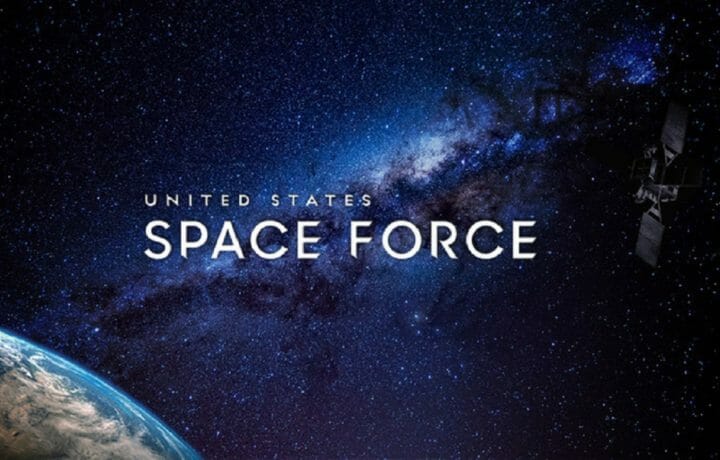The United States Space Force, the sixth and newest branch of the U.S. military, could find itself engaged in its first battle – not for the domain of outer space, but rather for control of the trademark to the very words “Space Force.” That is because last month, the online streaming service Netflix secured the trademark rights to “Space Force” in Europe, Australia, Mexico and the dubious sounding “elsewhere.”
What Does USAF’s Pending Application Get?
The USAF has only secured a pending application for registration for the “Space Force” based on “an intent to use.” That’s not the same as an actually confirmed trademark, but rather an application to trademark the name.
That doesn’t mean that the military will need to rebrand the service – nor would Netflix be compelled to rename its series had the Air Force secured the patent. Trademark issues arise when the two parties begin selling similar products. However, it is unlikely that Netflix will create its own military force that trains astronauts or even sponsors training problems. It is also just as unlikely that the military will launch its own TV series about the U.S. Space Force.
Problem with Netflix’s Trademark
Conflict arises if Space Force products – such as hats and T-shirts – show up in stores. A trademark is supposed to clarify such matters.
In the past, the U.S. government was largely lax when it came to registering trademarks for military assets, but things began to change in the past two decades. For example, the USAF has become protective of its rights to “NORAD Tracks Santa”, but the USMC has been the most aggressive at shutting down unlicensed products bearing the famous Marine Corps’ “eagle/globe/anchor” or EGA symbol.
More recently, it was public outcry rather than outright U.S. Navy efforts that stopped Disney from trying to copyright “SEAL Team 6,” the Special Forces Team that has never been publicly acknowledged. Disney had sought to register the name for everything from clothing to footwear, but fortunately the Mouse House abandoned its pursuit.
Intellectual Property Management Office’s Response
While the Navy SEALs may have won the day in that particular case, the Space Force Seal is also safe. As the USAF’s Air & Space Forces Intellectual Property Management Office noted on its website, “The official Seal of the United States Space Force is protected by law the same as all other military Seals. The Seal is not authorized for public or commercial use, and such use is punishable under law.”
Thus even if Netflix can market products based on its show, it couldn’t use the actual service’s symbol or other imagery. And despite some suggestions that Space Force “copied” or was otherwise influenced by the Star Fleet symbol from TV’s Star Trek, it wasn’t! As previously reported, “The seal is essentially an update of the United States Air Force Space Command seal, which features a ‘delta symbol’ over a globe with longitude and latitude grid lines and stars in the background.”
Last month, defense leaders presented the Space Force flag, which features that seal, in a ceremony in the Oval Office. The flag is hanging alongside those of the other military services within the White House.
Forces Share Resources
While the Space Force may have to battle for control of its trademark, it will soon have the force to do so – as more than 8,500 active duty airmen volunteered to transfer from the Air Force in May. About 6,000 of those volunteers will be selected to join the Space Force. Applications are being reviewed, and the Space Force will select those based on the specific career fields and ranks to see which of those airmen will best fit.
“I am incredibly proud of the men and women who made the bold decision to volunteer to join the U.S. Space Force and defend the ultimate high ground,” said Gen. Jay Raymond, chief of space operations, U.S. Space Force. “It is a critical time for space, and those Airmen will build the Space Force necessary to compete, deter, and win as required to meet the needs of the National Defense Strategy.”
Volunteers represent officers and enlisted members in the organic space Air Force Specialty Codes of space operations (13S) and space systems operations (1C6), and officers and enlisted members in several career fields common to both the Air Force and Space Force, including intelligence (14N), cyberspace operations (17X), developmental engineer (62E), acquisition manager (63A), operations intelligence (1N0), geospatial intelligence (1N1), signals intelligence (1N2), fusion analyst (1N4), targeting analyst (1N8), cyberspace support (3D0), and client systems (3D1).
All volunteers will receive a notification in July explaining the next steps in the process. No word on whether they’ll get a Space Force T-shirt, but they could also check with Netflix in the meantime.




